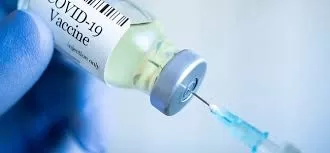It’s World Breastfeeding Week

This year, for WBW 2021, WABA has selected the theme: Protect Breastfeeding: A Shared Responsibility. The theme is aligned with thematic area 2 of the WBW-SDG 2030 campaign which highlights the links between breastfeeding and survival, health and wellbeing of women, children and nations.
Breastfeeding is one of the most effective ways to ensure child health and survival. However, nearly 2 out of 3 infants are not exclusively breastfed for the recommended 6 months—a rate that has not improved in 2 decades.
Breastmilk is the ideal food for infants. It is safe, clean and contains antibodies that help protect against many common childhood illnesses. Breastmilk provides all the energy and nutrients that the infant needs for the first months of life, and it continues to provide up to half or more of a child’s nutritional needs during the second half of the first year, and up to one third during the second year of life.
Breastfed children perform better on intelligence tests, are less likely to be overweight or obese and less prone to diabetes later in life. Women who breastfeed also have a reduced risk of breast and ovarian cancers.
Inappropriate marketing of breast milk substitutes continues to undermine efforts to improve breastfeeding rates and duration worldwide.
WHO and UNICEF recommend that children initiate breastfeeding within the first hour of birth and be exclusively breastfed for the first 6 months of life – meaning no other foods or liquids are provided, including water.
Infants should be breastfed on demand – that is as often as the child wants, day and night. No bottles, teats or pacifiers should be used.
From the age of 6 months, children should begin eating safe and adequate complementary foods while continuing to breastfeed for up to 2 years and beyond.

Evolution of the Campaign
WBW is celebrated every 1-7 August in commemoration of the 1990 Innocenti Declaration. WBW started in 1992, with annual themes including healthcare systems, women and work, the International Code of Marketing of Breastmilk Substitutes, community support, ecology, economy, science, education and human rights. Since 2016, WBW is aligned with the Sustainable Development Goals (SDGs). In 2018, a World Health Assembly resolution endorsed WBW as an important breastfeeding promotion strategy.












